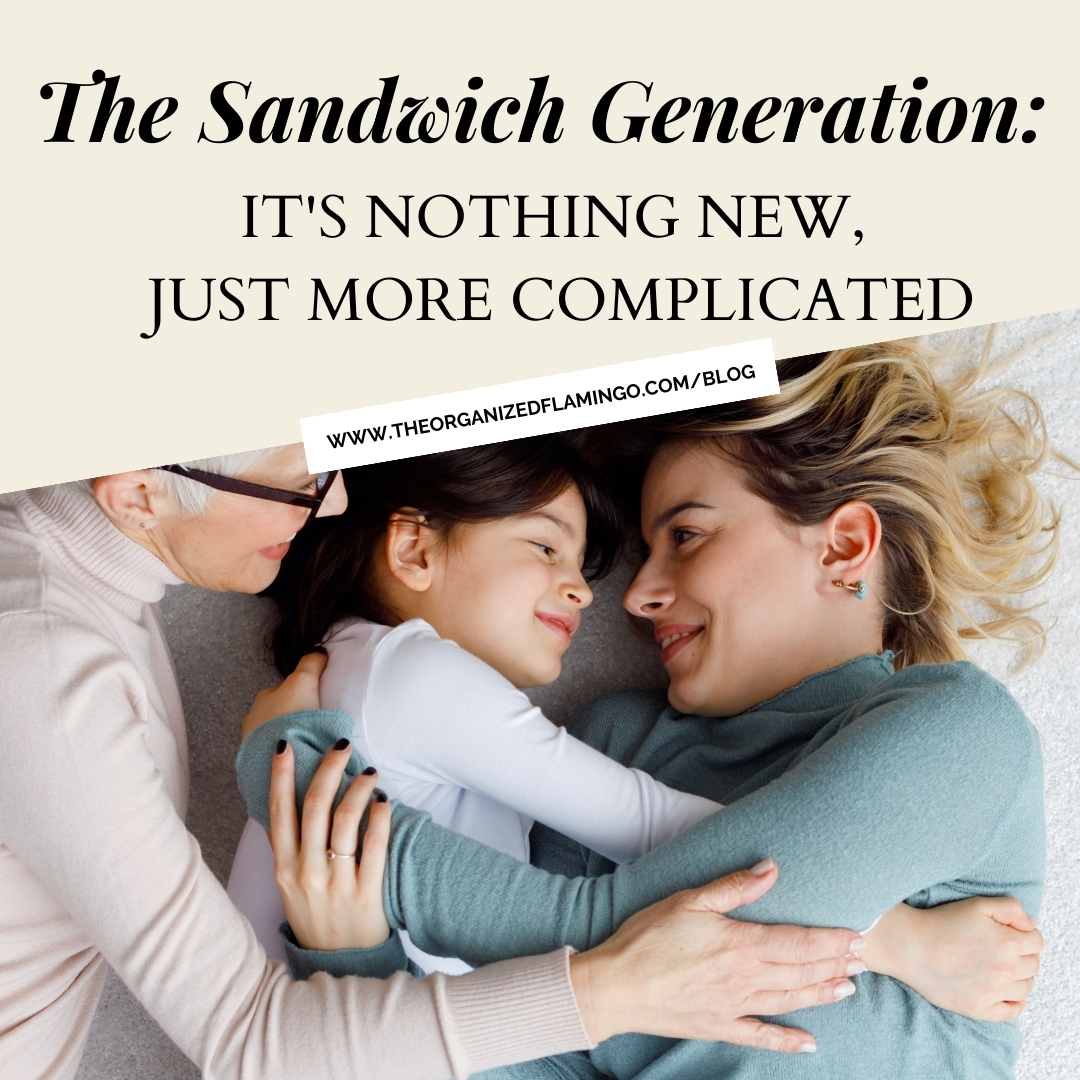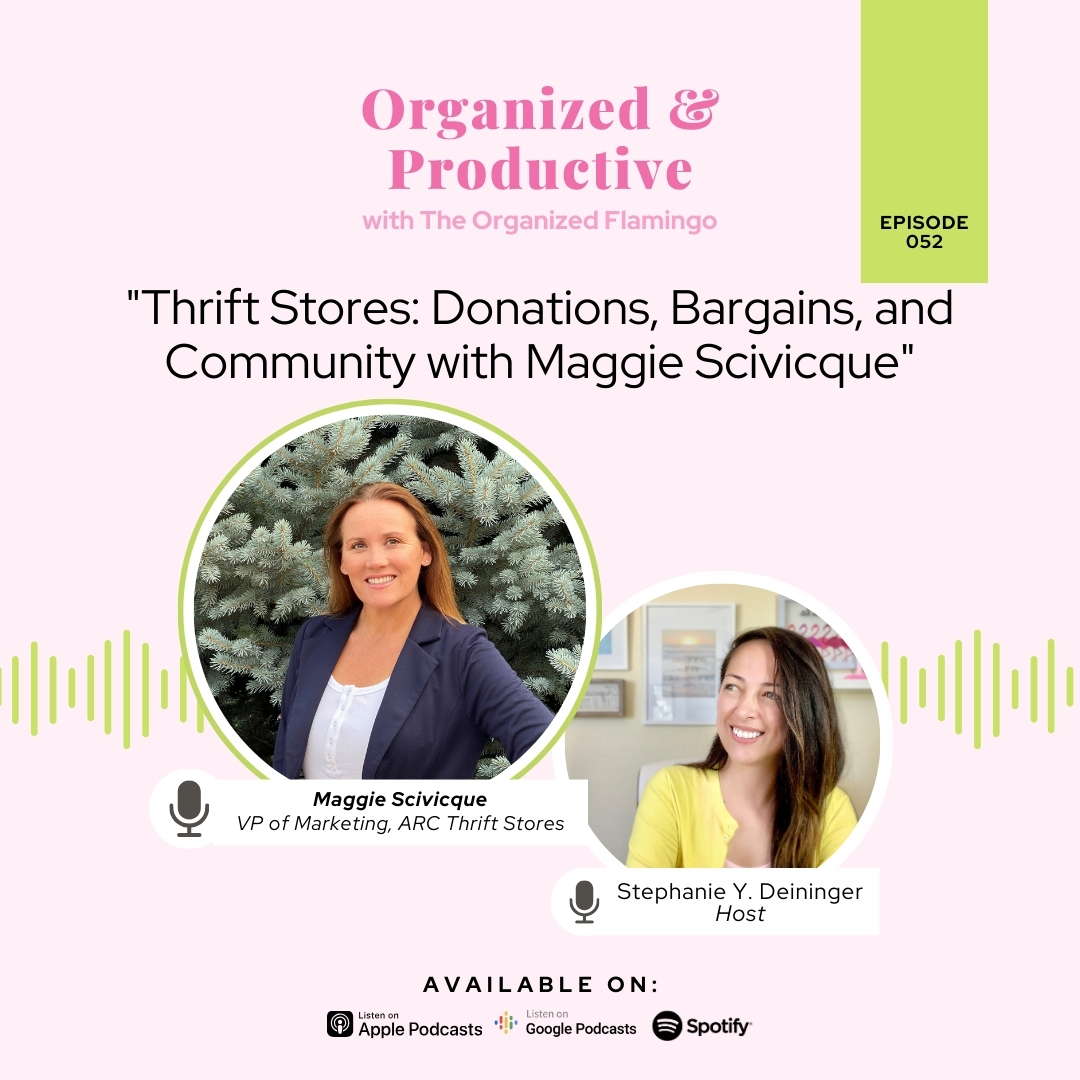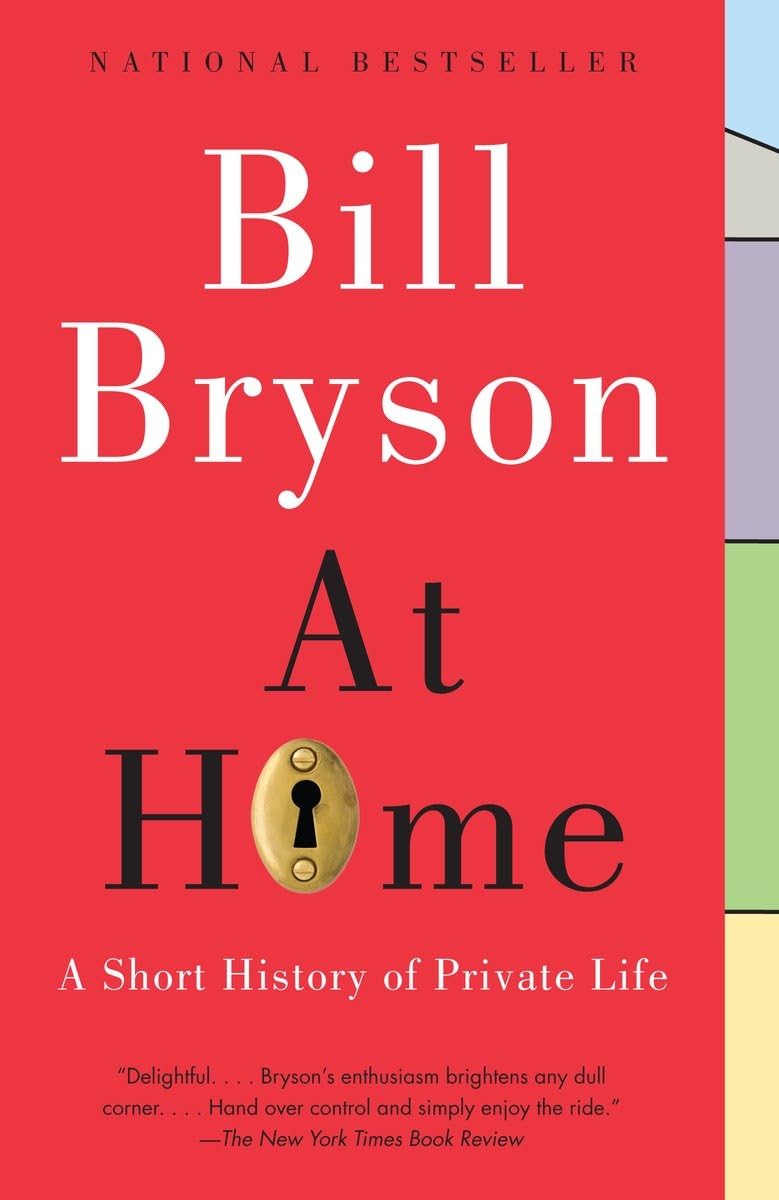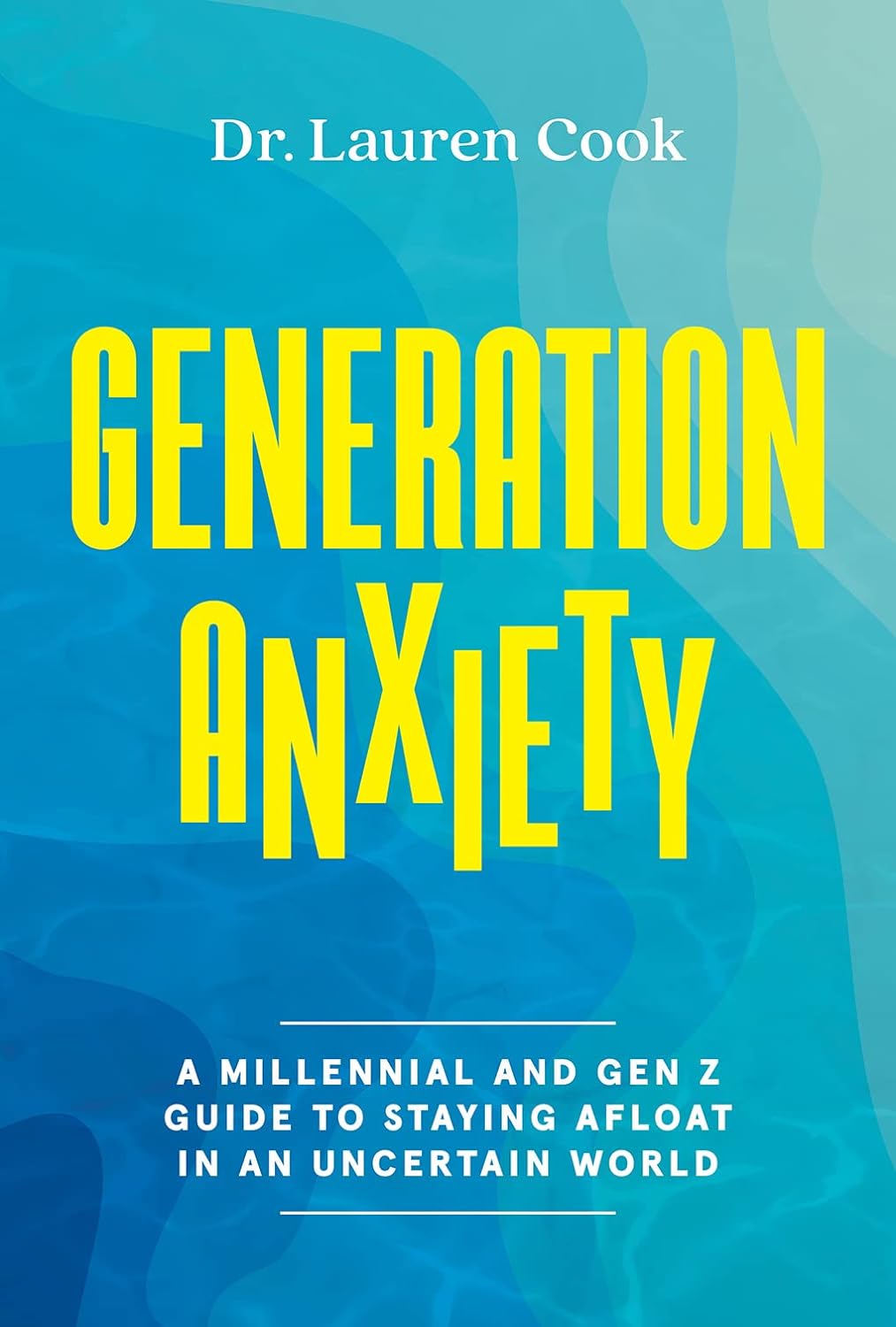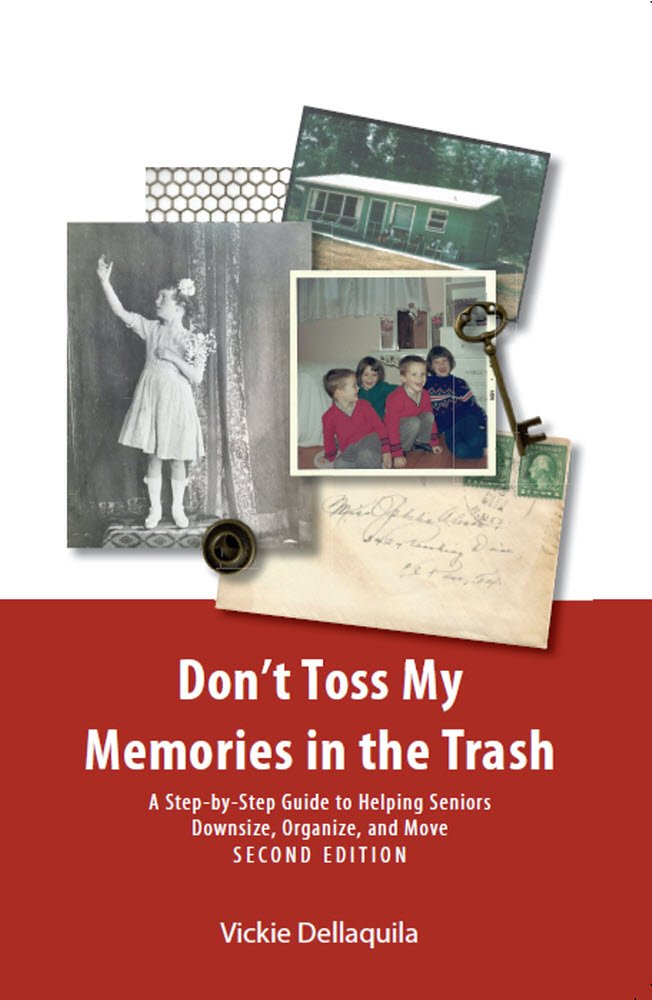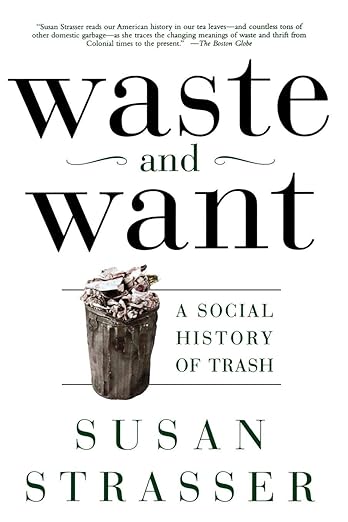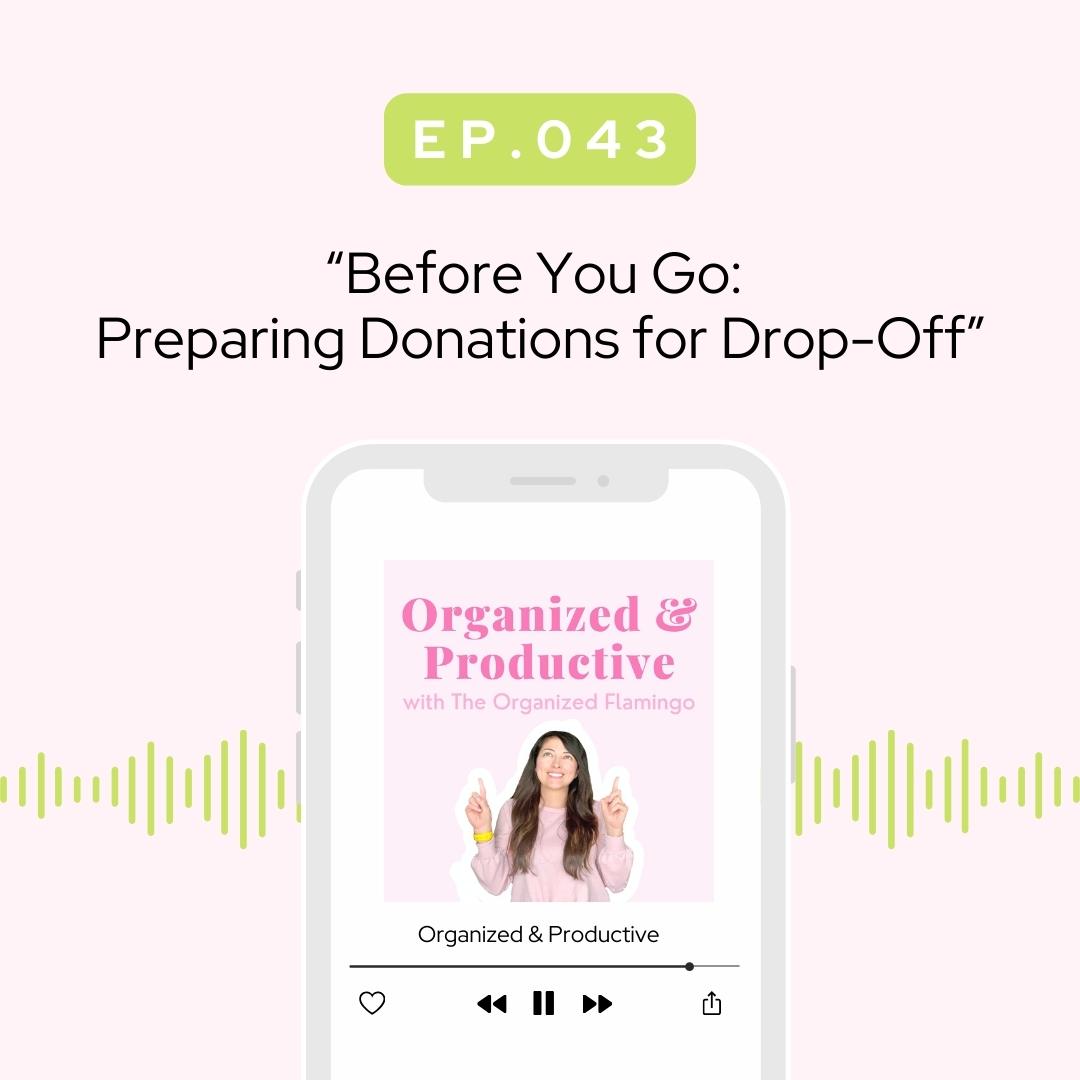In this episode, we dive into the world of thrift stores, specifically arc Thrift Stores in Colorado. We debunk misconceptions and uncover the true essence of thrifting. Our guest, Maggie, shares insights that shed light on the power and significance of thrift stores in our communities.
As we discuss the multifaceted options in the organizing journey, we emphasize the significance of thrift stores as a sustainable choice. Thrifting isn't just about finding treasures; it's about contributing to a circular system where goods find new homes and purpose.
Join us as we explore the invaluable role thrift stores play in sustainability, community engagement, and the joy of finding unexpected treasures. Let this conversation open your eyes to the possibilities and significance of thrift stores in our lives.
In this episode we talk about:
- Discovering the misconceptions and misunderstandings that often surround thrift stores
- The experience from the buyer's and donations standpoint
Where to find Maggie online:
ABOUT MAGGIE SCIVICQUE: Maggie Scivicque is Vice President of Marketing for Arc Thrift Store, she is responsible for the marketing efforts that help drive the success of the nonprofit in Colorado. Maggie is also the host of Get Thrifty, a fun and informative podcast that was named in the Top 20 of thrift podcasts in the U.S. She is dedicated to the arc mission and brings infectious energy and enthusiasm to the work she does.
ABOUT ARC THRIFT STORES: arc Thrift Stores operates 34 thrift stores and 15 donation stations throughout Colorado. Store operations provide funding to arc Chapters, which in turn provide advocacy for people with intellectual and developmental disabilities. Arc Thrift Stores is one of the largest employers of individuals with intellectual and developmental disabilities in the state of Colorado.
Web: http://www.arcthrift.com
IG: https://www.instagram.com/PodcastWithMaggie
—
The Organized & Productive podcast is brought to you by The Organized Flamingo and hosted by Stephanie Y. Deininger! For those of you who love the thought of organizing & being more productive, but don’t know where to start or are constantly up against hurdles that don’t let you advance the way you want to, this podcast is for you!
Review full show notes and resources at
https://theorganizedflamingo.com/podcast
Join our weekly email newsletter for all-things organizing & productivity delivered right to your inbox
https://theorganizedflamingo.com/quicklinksDownload your FREE “Should you Keep It or Toss It?” decision tree https://organizedandproductive.com/keeportoss
Review the Transcript:
Stephanie
Hey friends, and welcome to our next episode here at organized and productive. I'm Stephanie, your host. For today's episode, we have a very special guest, it is Maggie svic. From our thrift stores here in Colorado. She is the Vice President of Marketing for a thrift store for our thrift store. And she's responsible for the marketing efforts that help the success of the nonprofit. She and her team manage social media, they coordinate the television buys all the creative stuff that you see online. That's all her in her team, which I didn't know there were 34 thrift stores around Colorado, the Front Range and the western slopes. And there's 15 donation centers and she talks about how there's a few others I think some new stores coming in and maybe outside of Colorado too, which is really exciting. And I met Maggie through her podcast. So through the podcasting world, her and Ark, they have a thrift store called Get thrifty, which is a really wonderful podcast, if you are interested in that she interviews people all around the world that find value in thrifting. And it's really eye opening you get to meet very interesting people here. They're very interesting stories. So if you like that type of thing in your into the hidden treasures of thrifty and then head on over to get thrifty their podcast. So that's how I met her because I was listening in on these conversations about thrifting. And I've become a lot more aware about thrifting. And the, and how it can help our clients and our community in their decluttering journey. Because yes, you can find that rarity. And that one priceless item that you got for $1 or something like that. Sure. But it also helps the the community to get items that are pre loved and sometimes honestly quite brand new. Because that's, you know, a lot of people donate brand new things, but pre loved and they get it for a fraction of the cost really helping the community thrive and helping other people get things that they need at a much more reasonable price. And also somewhere nearby that is very community oriented. So when I went down the rabbit hole of finding thrift stores and consignment stores that I think have good values, I think could be a benefit to our community. There thrift stores came to mind. And then I started listening to their podcast and realized oh, my gosh, you know, they're a wealth of knowledge. And one thing led to another. And that's how Maggie and I met, I asked her if she would be part of the conversation. And the rest is history. So I'm excited for you to listen in on the conversation and get to know her, but also get to know the power of thrift thrifting. And also the misconceptions that people have and what the reality is about a thrift store as a donator. But also if you're donating things, but also as a buyer. So we dive into those misconceptions, misunderstandings, and clear those up. And hopefully you will find as much value as I did out of the conversation. And remember, you have many options in your organizing journey. thrifting is one of them, donating is one of them. But also know that when you are ready to let go of your stuff, you also have a place where you can go and buy things back. If that makes sense. It doesn't always just have to disappear forever, and you will never see it again. Sometimes it will just come right back because it's all part of the community ecosystem. So all right, without any more delays. Here we go with Maggie. Welcome to the organized and productive podcast with the organized Flamingo. I am your host Stephanie, a professional organizer and productivity expert, ready to explore the right organizing and productivity solutions for you. Yeah, well then let's go. Hey, Maggie, welcome to organizer productive, I'm so happy you're here. Because everyone knows we get straight into the conversation. So welcome.
Maggie Scivicque
Thanks so much for having me. We're really excited to be here. Yay. So okay,
Stephanie
we want to get right into the nitty gritty. And really, the overview here is more about the misconceptions that people have about thrifting or secondhand. And let's dive right into that. What what are some of the misconceptions or misunderstandings that people have that you have come across working in this field? Now?
Maggie Scivicque
You know, it's so interesting, and it really is a great question, because, you know, I think one of the biggest things that people deal with when it comes to thrift shopping is being overwhelmed by it, you know, especially with our stores, we have very large stores, we you know, have almost every category available to the consumer, and it can be a little overwhelming. So we have all sorts of you know, over the years have learned tips and tricks for people. You know, some people are not overwhelmed. They're like, this is my jam. This is you know, I'm there for the treasure hunt. Get out of my way. I love it and then some people are overwhelmed. So I think if you can kind of go in with an open mind if you're new to thrifting that's a great place to start when approaching a thrift store. What is
Stephanie
a thrift store? Exactly? And how did you guys you are defined? And I mean, I think for the most the most part, most people kind of understand. But if someone's just getting into this and wanting to shop some more
Maggie Scivicque
also a great question because you know, that's so true, people don't always understand what it really means. It's all about shopping secondhand. For most thrift stores, especially here in Colorado, most of our thrift stores here are affiliated with a nonprofit arc is no different than that. We run 34 thrift stores that are, you know, our main purpose is to sell gently loved items to the public. Now a big part of our business is also gathering donations, you know, a thrift store is only as strong as their donation stream. And when you reached out, I was so excited, because, you know, I feel like a lot of your listeners, your audience, they really have this like heart for donation. And I'm excited to be able to speak to them. And really, you know, not only share with them how easy it is to donate, but oh my gosh, donate and then come around to the front door and walk inside and buy as well, for great deals for the treasure hunt for something special.
Stephanie
Yeah. And well, I mean, exactly, that's how I found you on the podcast, because the love that our listeners do have, it's the love of the stuff, but they just can't hold it all for whatever reason, they may be downsizing, just wanting to try something different sometimes. And sometimes you have to, or your health and what other reasons, and when someone gives it to someone that or an organization that means something or they understand that it's going to a greater cause and or it's part of the ecosystem, because they can go find something else that they aren't going to use. So it's this, you know, beautiful marriage if if you want it to be. So I love that you said that. This is a place where it's pre loved. It's a misconception that it can be messy, if you know what you're looking for. It doesn't have to be that way.
Maggie Scivicque
Yeah, absolutely. And if you're open to that thrill of the hunt, it can be really a treasure hunt. And if you are overwhelmed by it, you know, take it in baby steps, you know, one category at a time is always a great way to approach a thrift store. But I love that your your audience really does have a heart for this. And it's so interesting to me, you know, organizing, I love that there's these piles, you know, the keep pile, the the trash pile, but the donate pile, and I want Ark to be the first place that people think of when they are creating that donate pile. And it's easy to feel that way. I mean, our mission, as you know, is really to help people right here in Colorado with intellectual and developmental disabilities. So we fund 15 arc chapters across the state, we're looking to expand and 2024 We're very excited about that we may be moving to other states. And really, you know, spreading this joy to other states. We're very excited about that. The quiet, underlining rumor is that maybe it's New Mexico, so fingers crossed, which would be great, you know, really to spread what we're doing here we run thrift stores in a very particular way. Yes, we're a nonprofit. Yes, we have those deep feels, you know, we care about the environment, all this. But really, we run it like a business. You know, my CEO is a visionary. He is very much a type a hardcore businessman, and finance. And you know, running this, like a business has been really important to us and has been a really tremendous part of our success. So yes, we give back to the community. We care about that tremendously. But the reason we've been successful is because we treat it like average retail. And I think our customers really appreciate that as well.
Stephanie
Well, that's a great segue for us to talk about, how do you pick the items that you sell? And now that you mentioned, is a business? So how do you figure out what people are going to want or buy? How do you do
Maggie Scivicque
that? You know, for us, when it comes to making it like traditional retail, it's about seasonality, right? The customer when they walk into a retail store, they want things that are seasonal, when you walk into our thrift stores, unlike many Mom and Pop thrift stores and no dis to them, but we just don't do it this way. We don't put Christmas out in July, it just doesn't happen we save for seasons, it really sets us apart, because our consumers can count on us for seasonality. So when they need that coat, they know that they can find those, you know, lightweight knits, long sleeve knits, winter coats, sweaters, it based on the season. That's very important to us. And again, it sets us apart. So this is another misconception we'll back up a little bit is that we take donations from the consumer and store them somewhere and then push them out to the stores. That would be a terrible carbon footprint. We don't do that. If you donate at a specific store, it stays at that store. Now we do store it for seasonality. So if it's a Halloween costume that we got in May, you're not going to see that out on the floor till October. But you can count on the reflection of the thrift store as a reflection of the neighborhood. It really is. It's also a nice little insider tip for shopping our stores. If You really like the neighborhood's a little eclectic and weird, great thrift store, right? It depends on the neighborhood, because those are the donors because people donate I wish for our mission, but mainly for convenience and ease of ease of access, right? So that's, that's always a fun part. But again, another misconception is that, for some reason, people really think, oh, you know, thrift stores are hiding the good stuff. We don't even have an E commerce site. We don't do that. We really want what is delivered to the store to be sold at that store. It's an important, you know, gift to our community.
Stephanie
Yeah, I found that I was I was doing my research, I had no idea because I think that's another one of those misconceptions, and why people like poor customers that we have inclined, they won't donate to some of these vape box because they feel like it's just going to be worse for the environment, they will be shaped they will take the good stuff and try to you know, sell it to just an unfair amount anyway, in all these other misconceptions. Oh, true. That was looking at you guys. I was like, Well, I had no idea that you do keep it within the neighborhood, which I think is great. Yes. And
Maggie Scivicque
we really try and be good stewards of these items. You know, it's true that a lot of stuff can't be sold, people do donate their trash to us. It's true. So we do have a bit of, you know, waste that goes out there, we hate that we try and responsibly recycle. I like to be very transparent. Let people know, we do you know, if something can't be sold on our floors, and can be sold overseas to a thriving third world country that really thrives off their second hand market, we try and do very strong research. So we're only working with brokers who work with countries who care and make sure that those items aren't ending up in, you know, landfill in South America, that would break us we don't want that kind of reputation. So we have an entire department devoted just to our recycling efforts to make sure that we are you know, lessening our carbon footprint, even our warehouse is located on a rail line, so that if we are putting stuff on the cargo ships, it's going to countries who are responsible for it and do the right things. That's really important part of our mission to Yes, it's the people with disabilities. But if we're going to do this, we got to do it. Right. We have been named one of Colorado's largest recyclers. It's an important status. And the only way to keep that is to do the right thing and to be good stewards of the things we cannot sell. That's
Stephanie
wonderful. That's great to hear. Okay, so then going back to the misconception, but a little bit about your stores as well. So do you have a cap? Like what are some tips that you would give listeners of, you know, don't break, I know you have a whole like, on your website, you have a, you know, a helpful sheet for the donators, but in general, do you have some advice for our listeners, when they're going to the donation center about, hey, you know, don't donate too much or try to stay within the seasons? That's a great point. I mean, it sounds like you you store it, but you try to really put it put it out by season. So are there tips like that, that people can be aware of so that their carbon footprint is less so that it's more impactful? But they do you
Maggie Scivicque
know, the biggest piece of advice I can give people and you know not to worry about seasons, because like I said, we do have a robust storage system, it's all bar coded, we can find it in an instant. It's, that's not a problem at all, the biggest thing for us is like bring it in boxes and bags and separate it by hard goods and soft goods. That's the biggest piece of advice I can give you. You know, yes, like you said, the website is a great tool for what we can't accept. And that's mostly like mattresses, televisions, paint, live animals, you know, that kind of thing, right. But if you can separate it by hard goods and soft goods, that's the easiest way for our production team to take it from your vehicle. And you don't even have to get out of your car, pop the trunk say empty my trunk, we'll take it out for you. We'll put it through our line and hard goods versus soft goods is always best in a bag for the soft in a box for the hard. That's the easiest way to do it. And again, you don't even have to leave your vehicle we really will help you out empty your vehicle for you and give you a tax receipt when you're out the door. So it's a really easy process.
Stephanie
Oh, I love it. Okay, so let's talk about stories and of people bringing stuff in or maybe the ones that find the style so you I've listened to your podcast and we will give details on that in just a bit also in the show notes if you're listening right now but the those stories you have on your on your podcasts are credible, and they're really cool. So are there stories that have left some kind of, you know, warmth in your heart or Sure, a moment for you now having worked with art for a little bit?
Maggie Scivicque
Absolutely. You know, we have wonderful stories. I love the stories that come directly from the store. But yes, you're absolutely right. The get thrifty podcast brings us people from all over the world literally with stories but one of my favorites is mid mod Marian she's actually from Colorado Springs, so she's a native girly, and she found a steamer trunk louisv Aton steamer trunk and one of our stores one of three incredible I can't remember exactly how much she paid for it but it was very low. It actually now is part of her Wills and Trusts because it you know, once she had it authenticated as an original, you know, 1900s Louie Vuitton trunk that had, you know traveled on steamer lines all over the world had all the Insignia I mean straight off the Titanic type trunk, from Louis Vuitton in mint condition. And somebody out there got the other two because mid mod Marian Marian down in Colorado Springs only got one and this thing is worth just you know, honey, it's very expensive. So that I love that story because it was local. And it's just this idea that, you know, we're a thrift store, we're not always going to know what we have. So it's such a treasure hunt. And I think you said it best with the whole not doing the E commerce thing. We are not cannibalizing our stores to sell things online, we take that very seriously. Not to say that we'll never sell online, you know, things change, the economy changes. I don't know if another COVID is set to come or whatnot. Who knows, we may be forced to try selling online someday. But right now, our stores are brick and mortar, you can come in touch, feel really have the experience of shopping secondhand, and know that you're helping out a great organization in the process. And we're not going to take the good stuff from the stores. Now. That doesn't mean that someone's not going to get there at eight o'clock in the morning and wait in line on a Saturday. As you know, our stores are very busy. 50% off Saturday. And you know, unless you're on top of it, you're not going to get that half price deal, because we got a lot of people, I think we did 4 million customer transactions last year. Incredible number, right. And I always like to joke we make millions off selling dirty T shirts. Because you know, that's always my favorite my favorite line. People that's my favorite customer complaint to you change the laundry detergent. Sorry, hon, we don't wash.
Stephanie
No, no, that's, that's a different department that has a different price for that. So
Maggie Scivicque
people really have, you know, they think we wash every item, I'm like, Oh my gosh, that would cost us so much in water. And then we would be killing what we would we're doing to be for the environment by taking these off people's hands. You know, I always suggest when you buy clothing in a thrift store, take it home and wash it. But you know, and many people are so great about washing, I can't tell you how many items come either tag on or in a dry cleaner bag. You know, and most dry cleaners, especially in Colorado are so generous if they have to get rid of it because they don't have room. They donate it to our care stores. So I love the stuff that comes in a dry cleaner bag. You know, it's been well loved. Someone might have forgotten it. Don't forget your dry cleaning folks. It ends up at our stores. If
Stephanie
you do and it's been a while check in our store, probably.
Maggie Scivicque
Yes, it might have you know, the dry cleaner tag on the actual tag hanging on our on our aisles is the other part
Stephanie
is I hope listeners are picking up on this as well that yes, you know, we talked about these really fun stories of collectors or lucky ones that ended up stumbling upon that one Rarity or whatever. But these are pre loved items that are also going to the community that needs them and can get a good a good deal out of things that they need coats, especially here in Colorado for the winter. So I love you know, everything that you are all doing. And that's you know,
Maggie Scivicque
that's that's such a good point, too. I mean, really, people don't understand, you know, yes, I love our young influencers who come in and like make tic tock videos. For me. I'm like obsessed with how exciting and hip thrifted has become. But you're absolutely right. Our core demographic is always going to be you know, that single mom who is trying to clothe their children. And we take that relief effort really seriously too. We do a voucher program, where we actually work with most nonprofits in the state of Colorado where we give vouchers so that if people are truly in need, they can get vouchers to shop our stores. You're absolutely right, that that lower income mom is our core customer, and we will do anything to make sure she's getting a good deal.
Stephanie
Yeah. And so for our listeners who are downsizing and letting things go, yes, you know, don't, don't overthink it. Because sometimes yes, you might have something that is a value and you you gave it away, but honestly, when you're giving these things away to an ark or something like that, whatever you'd like that. It's also helping people who actually really need it, and they've been in your closet this entire time. And so it's a win win for everybody.
Maggie Scivicque
So urge that stuff. Bring it to us. Yes. Okay,
Stephanie
so is there any other fun facts about either your store or things that you've seen that you think people would really enjoy? You know, decluttering like to keep in mind?
Maggie Scivicque
Yeah, I mean, it really is a treasure hunt. And you know, I always like to tell people, you know, get out there and really get to see some of our customers you meet the most interesting people, people who are absolutely obsessed with like vintage Pyrex. I've got ladies who are obsessed with the dolls. We've got people who upcycle and they take some of these things just met a guy. He takes like grandma's quilt So we get donated and he buys all of them. And he makes really awesome Blazers for men out of them. I mean, there's women too. There's a gal out in Greenwood Village, she She's no older than 19 years old Emily. And she actually takes men's oversized blazers, and she cuts them and make re fashions them for herself into miniskirts and blazers like a set. So adorable. She's putting herself through college with this. So the stories that come out, it's never ending, like you said, the good thrifty podcast, we get to talk to people who just are doing incredible things in our community with these items. And they these young people care about the environment in a whole different way than we do. And it's just a parent, they want to come in, they don't want to be dressed like everyone else, they would sooner you know, they would not be caught dead and fast fashion. They are proud to say thanks, it's thrifted. And they want to tell you how much they didn't pay for it. You know, that's always a fun thing. It's uh, I'm amazed that I get paid to do this job because I get to meet the most incredible people that are doing just amazing things, whether they're making money off of us, or, you know, donating that it's all this beautiful cyclical synergy that helps everyone and everyone wins. Yeah.
Stephanie
Okay, before we get to our core questions that we ask everyone and everyone's familiar with, I'd love to hear what is a tip that you would give the donors to somebody who's coming in to donate and then a buyer who is visiting your store? Like, is there something like a tool, it's something that you would say, don't forget this when you come in, or hey, when you're donating? This is really helpful.
Maggie Scivicque
Okay, shopping first. So definitely come in with an open mind. But hit every aisle is my biggest tip. hit every single aisle don't miss the bottom shelf. Don't miss domestics. People often overlook the domestics department cuz they're like a bedsheets gross. They don't want to deal with that. There's so much else in there. There's linens, there's fabric, there's crafts, that's where we keep all of our crafting stuff. And we do bags of crafts. If you're a crafter, and you're not hitting a thrift store before before you hit regular big box retail craft items, you're missing out. If you like hot glue, and yarn and needlepoint and all of those things. Check us out even you know those big spools of those expensive yarn. We have men bulk girl, people miss out on the crafts section by skipping domestics never skipped domestics, and always look on the bottom
Stephanie
shelf. What about for those that are coming in to donate donors?
Maggie Scivicque
You know, the biggest thing is, we're so busy with donations, especially this time of year, come with little patience, you know, give us a chance. Here's another fun piece of information. We hire a lot of people with intellectual and developmental disabilities 20% of our workforce, whether they identify or not, has a disability of some sort, a little patience, a little kindness for that person who might be unloading your car, that would be my biggest piece of advice. They're very sweet. They're trying their hardest. And sometimes they get backed up with a lot of cars, it can get overwhelming, especially if you're dealing with someone who may have autism. There's lots of different things just to keep in mind a little kindness to our people at the back door, they really are trying their best and they want to impress you and they want to take care of your donation. So that's probably my biggest piece of advice. Oh, that's beautiful.
Stephanie
And it's part of the journey, right? Like, it's part of the whole experience for the moment that you are driving to donate. And that's the story. And it's the how you got there. I mean, so make it part of that journey and meet those awesome people that are working there. Absolutely.
Maggie Scivicque
And it will make you smile, you'll leave with a smile, if you can be a little patient to give them a smile, and they're so excited to be there. You know, we really are the people that we hire. That's one of my favorite parts of the job is that, you know, these are some people who are not going to have the college experience. This is their first job in many cases. first paycheck, it turns them like their first boyfriend or girlfriend oh my gosh, their first like social we do proms. We do parties. We just did our Christmas party yesterday. I mean, it's an incredible experience to you know, really be a part of their lives and they're the reason I show up everyday definitely. Oh,
Stephanie
fun. Oh, awesome. Okay. All right. So all our guests to get three questions and the first one is what is the one thing you would want people to take away from the conversation? Oh,
Maggie Scivicque
gosh, I mean, I have to you know, not so shameless plug it's got to be you know, podcast listeners. If you're listening to this podcast organized Flamingo, then you want 100% or a podcast listener? And I would ask please, add to get thrifty podcast, your lineup of listen to podcasts. We do it every week. Like I said, we speak to people literally all over the world. Last year we talked to someone in France or no she was in Ireland. She runs a thrift shop there. We just have stories from all over the country all over the world of heat. Well who are thrift errs pickers antique errs DIY errs up cyclers you name it, listen to our podcast we'd love to have you check us out
Stephanie
100% That's how I found us. Yes, please go listen. Okay favorite magazine and or business that you read for business or for pleasure. It could be
Maggie Scivicque
okay. And I was thinking of this I'm like are still we have two magazines that come to my house one for yoga for me and then the other for lacrosse for my son who's a big sports fanatic, but the more relevant to this is definitely a blog I've been reading lately and I'm super obsessed with it. It's called blue collar, red lipstick. First of all, such a cute name. And you know, Adina okay, I love that. So Dina is fantastic. First of all, she looks like a Ralph Lauren supermodel. She is so adorable. She has great fashion sense. She's all about sustainability. She's very organized. She'd be a great guest for you. And just a fantastic gal. She really is inspirational. I really enjoy her and her blog is always fun. Plus, her stuff looks couture, but she shops thrift. It's incredible. Some of the ideas she has with blazers and sweaters are just absolutely undeniable. She she's a force. So blue collar red lipstick would definitely be who I would suggest you go read more about.
Stephanie
Oh, thank you. This gave me a great idea. I'm going to ask I'm going to add blogs to the question. So it doesn't just Oh, yeah. Because nowadays second theme, there was absolutely yeah, it was such a good episode. Your questions were so fun and yeah, definitely go listen. Okay. Oh,
Maggie Scivicque
and Canadians I love the Canadians are so much fun. We don't have accents in Colorado. So I'm like, I'm anyone with an accent. I'm like, come on the show. Tell me your story.
Stephanie
Okay, so where can people find you? Oh, best place
Maggie Scivicque
to find me. You know definitely our thrift stores on facebook, instagram at our thrift podcast with Maggie on Instagram specifically to you know, follow the podcast. And then you can find us on our website www our thrift.com awesome,
Stephanie
wonderful. Well, thank you again, Maggie. And until next time, thank you. Thank you for listening to the organized and productive podcast with the organized Flamingo. If you enjoyed today's episode, I would love it if you'd leave a rating and review on your favorite podcast player. It helps with letting people know that we're here. For full show notes and resources head on over to the organized flamingo.com/podcast Happy organizing
